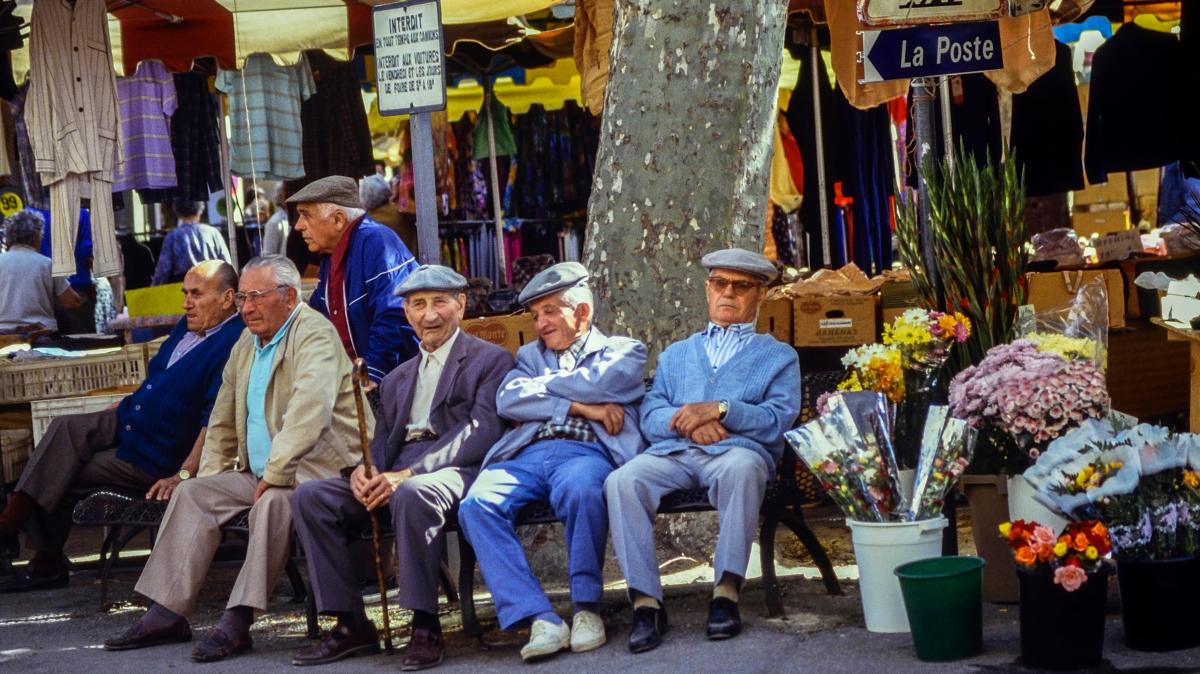January 21, 2020
The End of (Secular) Babies

Children are a heritage from the Lord, offspring a reward from him. Like arrows in the hands of a warrior are children born in one’s youth. Blessed is the man whose quiver is full of them. They will not be put to shame when they contend with their opponents in court. (Psalm 127)
Well maybe not in actual court, but in the court of public opinion? If you want to demonstrate how selfish you are these days just have more children – to the point of it costing you more money, time and energy than you every imagined. Do that and the court opponents of Twitter, Facebook and the secular mainstream media will soon pronounce you guilty.
So if your church wants to demonstrate how dangerous and edgy it is, then it doesn’t need to placard for a cause down the main street of your city. It doesn’t have to instagram or tweet its social justice policies, or take a stand against the hard secular culture. All it has to do is be populated by large families.
That’s right. Having children, multiple amounts of them, will make your families outliers in the culture. In this late modern age having children – and plenty of them – is an increasingly outrageous, if not to say subversive and scandalous act.
I say that because two recent, and fascinating, news articles, one in The Times of London, and the other in The New York Times, have highlighted both the fact of the shrinking, ageing population of the West, and the ideologies and fears shaping that fact. Put simply we’re not replacing ourselves at a sustainable rate, and we seem to have neither the desire nor the means to do so.
Well when I say “we”, I mean westerners in general. But Christians, and other faith communities? Well, they’re bucking the trend. We’re the radical ones. If demographics shapes the future, then the future looks more religious and less secular, even across the West.
Now there are other factors shaping all of that, for sure, but as I look around our small church of 150 people, I am struck by the number of large families, for this era at least.
At lowly Providence Church Midland, in Western Australia, there are six or more or so Boomer or X-Gen couples with four or more children, There are several Millennial couples with three or four, plus a few younger couples with two already, and plans more.
On top of that we have families with multiple children who are long term foster carers, and one couple who are unable to have children of their own who are on to their second adoption process. Indeed my wife and I – with a mere two children, well below replacement levels – are the radical outliers. We are surrounded by children, and lots of them!
No mistake about it, we Christians are bucking the trend. The trend in the West is less and less children, and having them later and later. The West is defined by its incredible shrinking families.
And its incredible shrinking hopes. And there’s the link. The New York Times article is provocatively entitled “The End of Babies”, but as you read it that end is merely the symptom of an even graver and deeper end: the end of hope, or at least the shrivelling of that hope to a less transcendent one.
And it’s not confined to those countries, such as the USA that are less “parent friendly” in terms of parental leave and education costs etc. Hard capitalism and the various bogeymen attached to it are ascribed some of the blame, and I can see that.
But Denmark – Europe’s most family-friendly country in terms of costs and state support -, is also scrambling to find ways to encourage its population to at least replace itself some time soon. For that’s the thing with demography, you can fall off the edge into a population spiral pretty quickly.
And notably within the USA, the more religious a community the more likely its members will have bigger families. There’s a definite link between the two that is more than whether or not a community uses contraceptives. There’s something bigger going on. And it’s revealing that for all its family friendly policies, Denmark is streets ahead of the US in this regard – it is highly secular.
The NYT article’s writer, Anna Sussman, has literally stored up a nest egg for the future, harvesting her eggs for a time when she feels she can afford to have children financially, emotionally and relationally. But even with all those caveats, it’s not a given that she’s ready. And she wonders will she ever be. It’s a great and honest read.
Sussman quotes economist Lyman Stone, who studies population trends:
[Lyman]points to two features of modern life that correlate with low fertility: rising “workism” — a term popularized by the Atlantic writer Derek Thompson — and declining religiosity. “There is a desire for meaning-making in humans,” Mr. Stone told me. Without religion, one way people seek external validation is through work, which, when it becomes a dominant cultural value, is “inherently fertility reducing.”
Make sure you read that Atlantic article by Thompson. I’ve quoted his article before in terms of work’s almost spiritual role in our lives in the West. And Stone’s comment is a beauty, isn’t it? “Meaning making”. Baby making requires a level of meaning making that stands outside the material world.
Stone’s comments, along with those of Texas professor of history, Trent MacNamara, who observes that economic conditions are only a small part of the issue, and attributes the drop in fertility to a shift in what shapes our “big ideas about dignity, identity, transcendence and meaning.”, reveals that it’s not about money, but it is about values.
Or to put it crassly, if your goal and dream – if how you ultimately value yourself – is to stand on a global media stage holding a golden statue in your hands, gushing about how, if it were not for reproductive rights, you wouldn’t be standing there accepting that award, then you have all you need to know about what gives you meaning and transcendence.

Now I know that straight away I will even get some Christians giving me grief for saying this. Especially in terms of creation care. After all, doesn’t having more children mean more pressure on the planet? Perhaps. But I’d hazard a guess that the carbon footprint of a funky inner New York childless couple is probably double that of a family of six living in a modest suburb in a 3×1 house who drive down the coast to a caravan for their holidays.
But the further the West drifts from the Christian moorings (as Tom Holland puts it in his latest, and brilliant book, Dominion: The Making the Western Mind ) the more radical – and obnoxiously radical to some, will the orthodox Christian life look to a world with shrivelled hopes. We won’t have to do anything different to what we are doing. “Continue as is” will increasingly look strange. More and more Christian families will be mocked in the streets with comments such as “Do you know how to stop it?”
There’s much to explore in this topic and I will write further on it, but in the meantime read those articles. The NYT one in particular is quite revealing and honest. Clearly one of the reasons we are running out of children is that we are running out of hope. The end of babies is the end of hope, or at least the shrivelling of our hope.
Perhaps the biggest proof of this is examine the contrasting hopes of those who believe that the less humans there are on the planet the better things will, with those whose hope is in the new creation (and no, I don’t mean we can trash this planet because I believe in the age-to-come, so calm down).
So what do we read in Revelation7?:
After this I looked, and there before me was a great multitude that no one could count, from every nation, tribe, people and language, standing before the throne and before the Lamb. They were wearing white robes and were holding palm branches in their hands. 10 And they cried out in a loud voice:
“Salvation belongs to our God,
who sits on the throne,
and to the Lamb.”
People, people, everywhere! More than anyone can count. A new creation fitted out for innumerable humans – not just those born of man and woman, but those born of God. And all praising King Jesus. And depending on where your hope lies, that will either sound like heaven or hell to you.
Written by
There is no guarantee that Jesus will return in our desired timeframe. Yet we have no reason to be anxious, because even if the timeframe is not guaranteed, the outcome is! We don’t have to waste energy being anxious; we can put it to better use.
Stephen McAlpine – futureproof
Stay in the know
Receive content updates, new blog articles and upcoming events all to your inbox.


